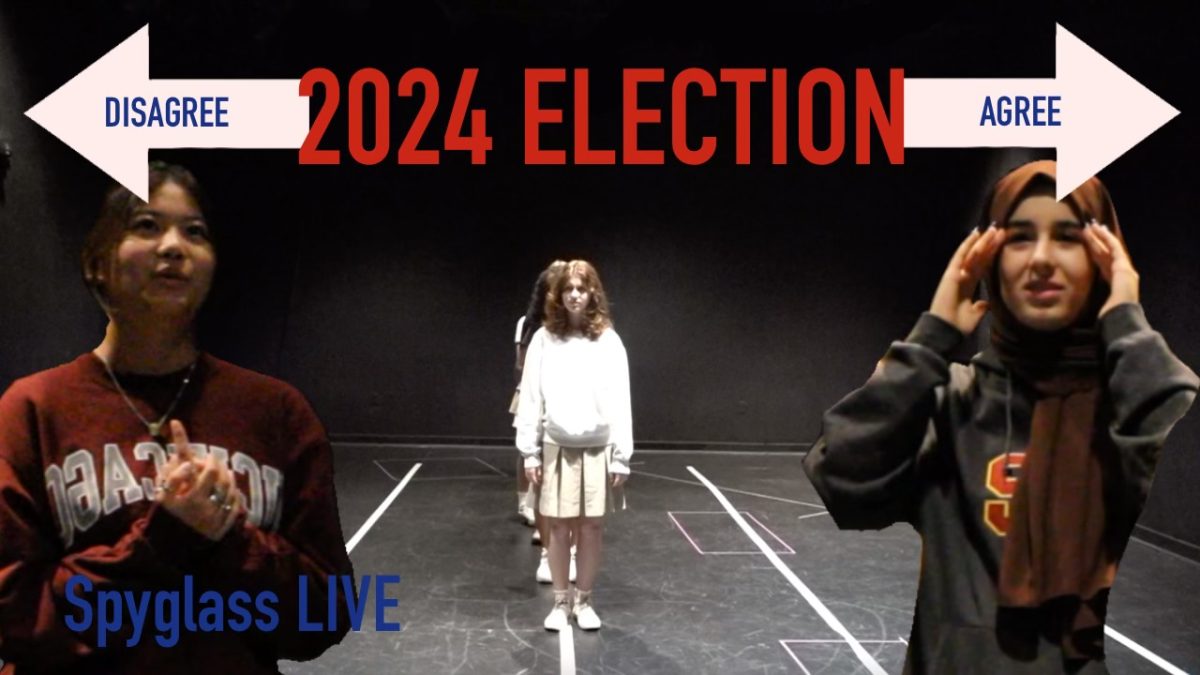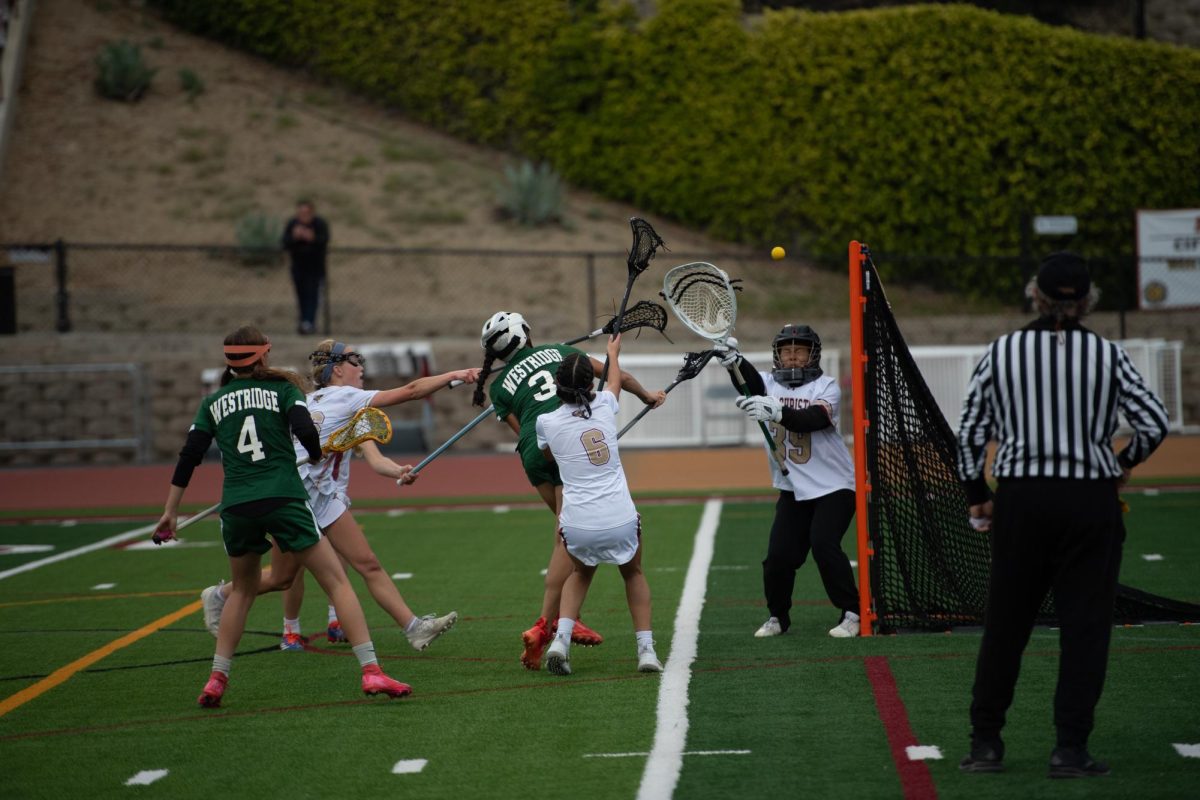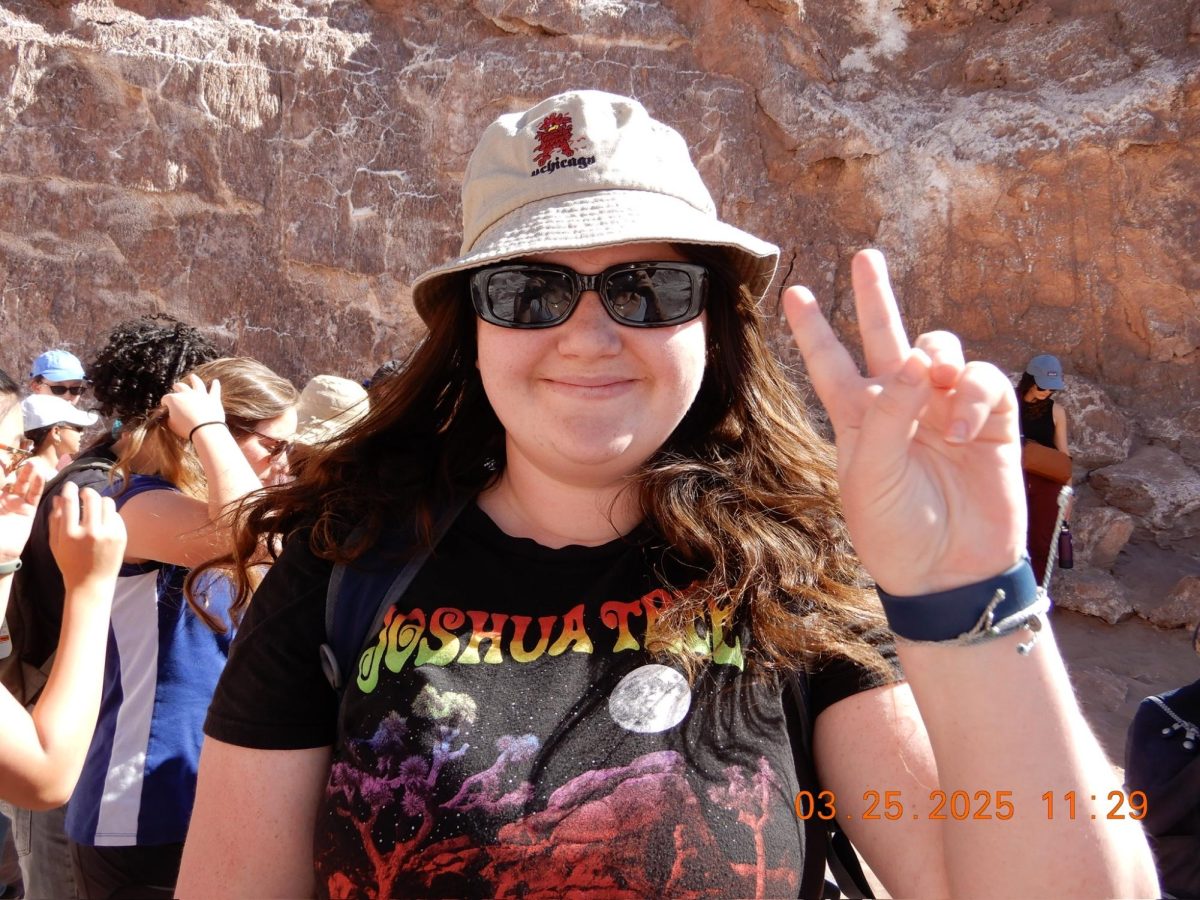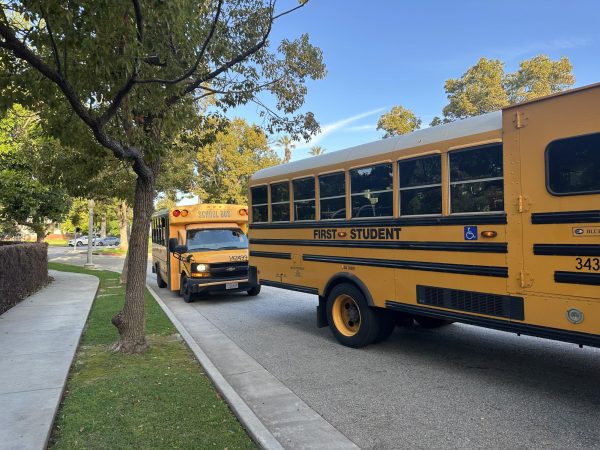No, It’s Not Just You. Sophomore Year is Really That Hard
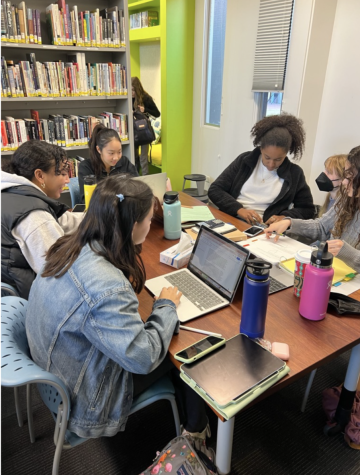
She’s not wrong. I can’t remember the last time I felt this…defeated? It only took a few months into my tenth grade year before I realized that I had made a big mistake. It wasn’t just that I now had double the homework I’d had last year. The class expectations seemed like they were outpacing me—especially in Honors Chemistry, a class several upperclassmen warned me that I would regret. Regardless, more than half the grade and I naively signed up, convinced we could handle it. The year started off smoothly, and the concepts were easy enough to grasp, but the workload seemed to double. On the day of my first test, I knew deep down that I was in over my head. We’re now in the fifth unit, and not much has changed.
What happened to the practically homeworkless nights of ninth grade Biology? I used to have time to hang out with friends after school and on the weekends. I used to go to bed early and wake up well-rested. My biggest worry was making friends and adjusting to the new environment of high school. Teachers would almost always generously extend due dates for sports, extracurriculars, or for illness.
Those days seem like a distant past. If I’m not at school, I’m thinking about school. And when I’m at school, I’m thinking about all the things I have to do after school.
What used to come so naturally in the past now just feels like it’s all falling apart. Maybe you once breezed through school without needing to learn how to time manage or study much, but now the expectations seem that much more demanding, and you just can’t seem to keep up. If what we’ve described resonates with you, then it’s likely that you too have hit a wall—The Sophomore Wall.
The Sophomore Wall is a term some Westridge teachers and administrators use to refer to the steep transition many students experience their sophomore year. Students who may have previously cruised through their academic experience are suddenly faced with a demanding workload both in time and intensity. The transition from ninth to tenth grade often comes as a shock to students, largely because their ninth grade transition from middle school was easier. Upper School Dean of Student Support Ms. Martinez said, “We are a lot more gentle with ninth grade.”
“There’s a lot more hand holding as [students] get used to high school, and then sophomore year, it all starts,” Ms. Martinez said. “And so if [students] didn’t really develop their skills yet, they really do hit the wall. Or they had such an easier time [in] ninth grade, they’re like ‘Oh, I’m gonna take all the hard classes. I got this.’ And then sometimes, ‘I don’t have this.’”
That hand holding, though well-intentioned, comes with a cost, as it can give students a false understanding of a manageable workload. As a result, students tend to overestimate their ability and end up taking multiple high level courses. Students end up learning the hard way if their time management and study skills aren’t up to par, which can create a crisis of confidence.
Hilary F. ’25 began, “Last year Biology was really easy. This year chemistry…” and Ella S. ’25 finished, “It just kind of exploded. The workload and the difficulty. I felt like it was really sudden, and I just was not prepared.”

“With all of the homework and all of our classes combined, it feels a little bit overwhelming at some times.” Willow N. ’25 said.
Current seniors spent their sophomore year online, so their sophomore experiences differ from the current sophomores. But Briar B. ’23, Fiona H. ’23, and Lola B. ’23 noted that the shift to online learning was more challenging than the workload.
“For me, academically, I wasn’t necessarily focused on that [the academic transition] at the time, because I was focused on the hardships of being online. But I’d say the course load did get a little harder,” Lola B. said.
It’s not just that students don’t feel prepared. Teachers’ expectations are also higher in sophomore year. In 9th grade, many teachers tend to focus on the transition between 8th to 9th grade, becoming more lenient with due dates and homework.
Upper School English teacher Ms. Wei has taught both 9th and 10th grade English classes and is amongst the group of teachers who focus on this transition. She shared that she does have different expectations for each class. “There’s a lot more hand holding in 9th grade to make sure everybody has what they need. And then in 10th, a lot of it’s on [tenth graders] to deliver and run things, to be engaged, to participate, and not just to do the reading, but to do the reading and then think about how you’ll participate with that. Instead of just, did I understand it? But how do I then demonstrate my understanding every single class?”
Hilary F. ’25 noticed the difference in teachers’ expectations from her freshman to sophomore year. “[Sophomore] year is more of learning on your own or learning outside, especially for Honors classes, and that’s different from last year because we had more assistance from our teachers.”

Alongside the shift in expectations, sophomores are able to take more advanced classes than they could as freshmen. With some exceptions, most freshmen are only able to take one advanced class—Advanced Geometry. However, sophomores can take a wider variety of advanced classes, including Honors Chemistry, Honors Algebra II and Trigonometry, Challenge by Choice History, and AP Computer Science Principles. Advanced and Honors classes come with extra homework and faster-paced learning.
Kayla A. ’25, the 10th grade class president, attributed the difficulty of sophomore year to advanced classes. “We had more options to take more classes, so it’s obviously more coursework in general. Also, instead of taking standard classes with everyone else, you also got the chance to accelerate. So if you chose to accelerate, there’s going to be more work and harder material.”
To take an AP class, tenth graders must give up their free block from an alternative PE or drop their art or language class. Even though sophomores taking AP Computer Science Principles and its teacher Ms. Autumn Rogers said that there isn’t too much homework, it’s one more class, one more transition, and one less free period.
“If you have that additional class, you’ve now lost that time during the day that you could have spent working with others doing homework or meeting with teachers to have things explained,” 10th grade Honors Chemistry teacher Dr. Udell said.

The pressure of college also impacts students’ decisions about taking advanced courses. To show colleges that they’re hard-working, students do everything they can to stand out. And taking advanced classes is almost essential in order to impress colleges.
Director of Counseling and Student Support Dr. LaFave said, “A lot of times students feel like they have to take as many AP and arduous classes as they can. And so sometimes I think, also, we can do a better job about helping students understand what their limitations are and what the workload is going to be if you overload yourself with all these kinds of things.” She later added, “Students feel that it’s their first chance to really pick, and they pick really hard classes, and they have this illusion that that’s going to make them competitive for college.”
“It’s really hard to help [ninth graders] understand ‘you’re putting too much on your plate.’ I don’t blame them—either parents and the colleges—the college process does not care.” Ms Wei said. “But some of it is we give the options, [but] this doesn’t mean you have to take them. And that’s really hard to not take the option. I also think if you really want to be competitive for the top schools, you kind of have to take all the options that are out there, and that’s tricky.”
Holly N. ’25 said that she was somewhat pressured to take advanced classes but not from her teachers or advisor. “Especially from parents and other peers, there is this pressure that ‘oh you need to take really advanced classes and get amazing grades, and that’s how you get into a good college.’ And I think that has influenced my decision because it’s hard to see how it won’t.” Holly N. chose to take Honors classes to challenge herself after a “good year” in freshman Geometry and Biology. “Some of it is for myself; some of it is to fulfill social expectations,” she admitted.
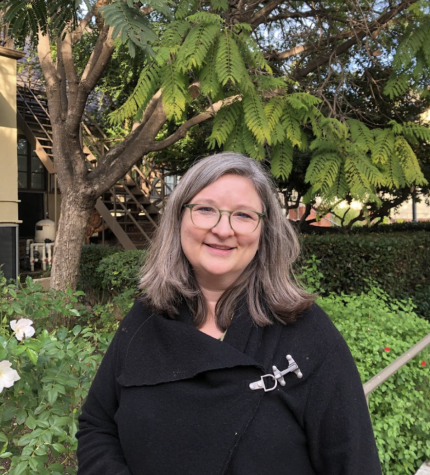
That expectation may be at the heart of what’s driving students, regardless of how the Westridge faculty responds or not. Westridge teachers and administration do actively look for ways to support students. Teachers have discussed the Sophomore Wall at grade level meetings, and there have been school-wide discussions regarding the amount of homework that teachers give.
Several teachers wanted to remind students about the academic and emotional resources such as the Writing Center and Math Center or reaching out to Dr. LaFave and Ms. Millard.
“With our advisors, we really try to pay attention [and] be in contact so that we’re watching over. We offer resources, we offer peer tutoring, there’s a Writing Center now, there’s a Math Center, which we’re hoping is helping to address [the difficulty]. And then our learning specialist, Ms. Millard. She works with kids with learning differences, but she also is a resource,” Ms. Martinez said.
Teachers also recommend trying to find a balance between schoolwork, extra-curriculars, sports, and everything else happening in each student’s life since everyone has different responsibilities and situations. Several people interviewed noted the importance of reevaluating expectations—both on the students’ and teachers’ part.
“I have taken so much out of my curriculum. In 2019, there used to be six things per night that I asked my students to do. I now ask them to read,” Ms. Wei said. “It’s a loss—we don’t do grammar, we don’t do vocab, we don’t do discussion boards—but something’s got to give.”

“I would really love us to have conversations around what kind of school experience you want to have, what your time limitations and energy limitations are. We’re all just kind of very different from one another as far as the bandwidth that we have or our neuro complexity. Some people have a slower processing speed, and it’s going to take them longer to do something, than somebody else. It might just come a little bit faster, and they can crank it out differently.” Dr. LaFave said.
10th Grade Class Dean Ms. Hatchman said, “Everybody’s different. Everybody has their own situations and their extracurriculars and everything. And it’s like, what’s right for this student versus this student? And it’s probably not the same thing.”
Ms. Wei recommended that anyone struggling to keep up with their workload now remember that feeling in the future to avoid repeating the same stressful situation. “It’s very easy in the moment to be like, ‘Oh, no, it’s fine. I want to take that AP… I want to take all the advanced classes.’ Even though, if you’re crying about classes that aren’t advanced, [it’s] probably not best to take more advanced [classes]…Think about where you are right now and then take that with you into where you’re headed next.”

Gia is a senior in her fourth year as a Spyglass staff writer and third year as a Copy Editor. She loves solving crossword puzzles and crocheting little...

Ari is a senior in her fourth year at Spyglass. You can find her playing sports, watching New Girl, or spending time with friends in Pasadena.




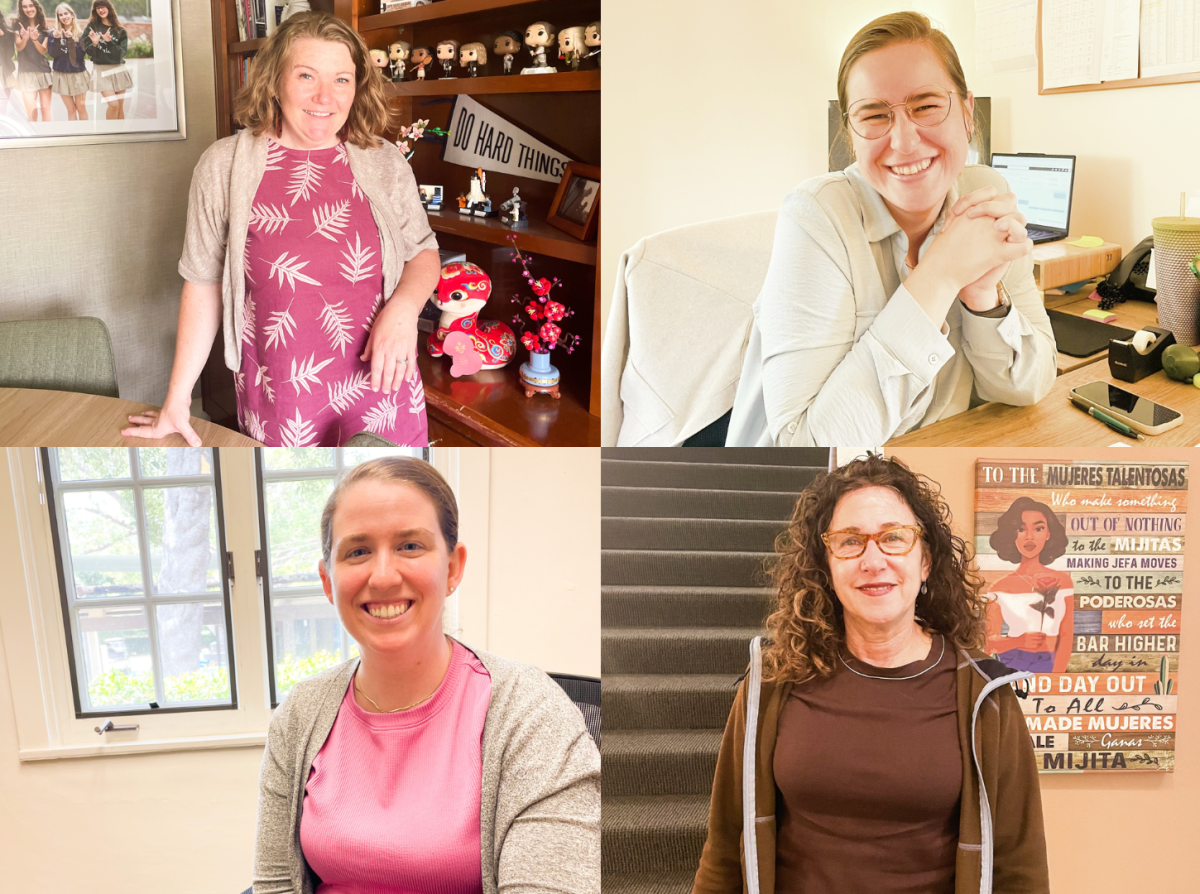
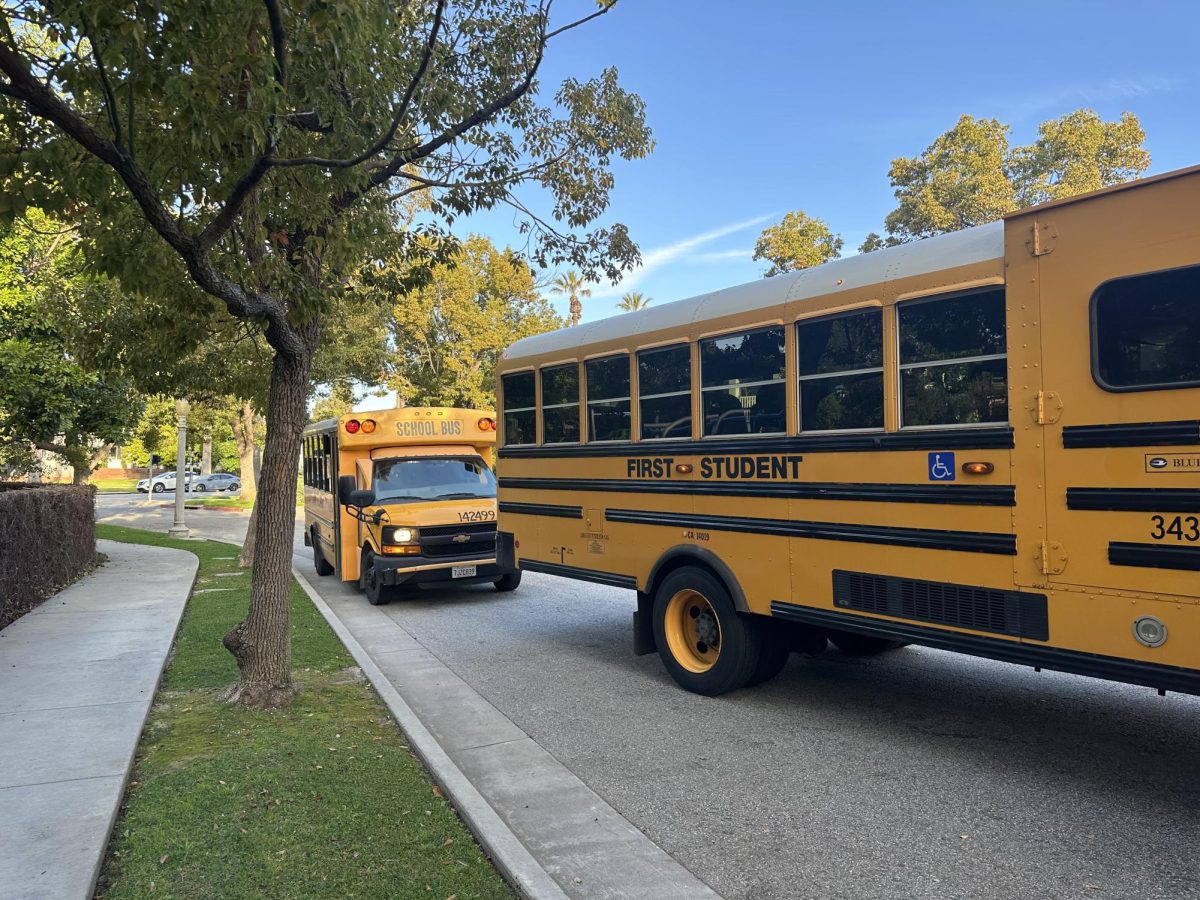











![Dr. Zanita Kelly, Director of Lower and Middle School, pictured above, and the rest of Westridge Administration were instrumental to providing Westridge faculty and staff the support they needed after the Eaton fire. "[Teachers] are part of the community," said Dr. Kelly. "Just like our families and students."](https://westridgespyglass.org/wp-content/uploads/2025/03/dr.-kellyyy-1-e1748143600809.png)






















